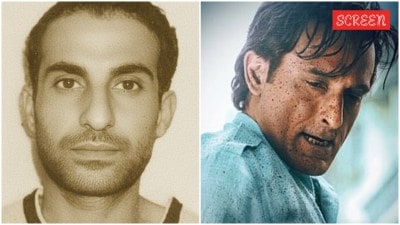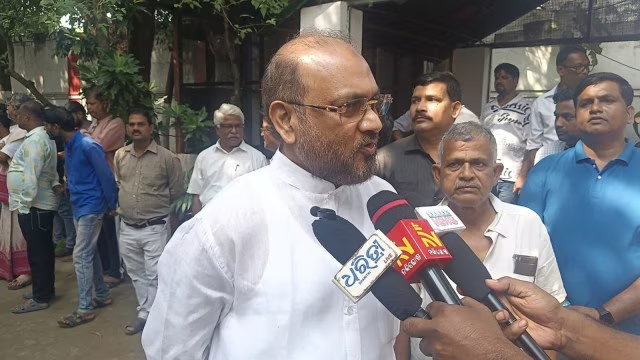The section on the Ayodhya dispute in a chapter in NCERT’s Class XII political science textbook is said to have been revised to give primacy to the Ram Janmabhoomi movement, factor in the 2019 Supreme Court verdict allowing the temple — and, in at least three places, references to the December 6, 1992 demolition of the Babri Masjid have been deleted, The Indian Express has learnt.
The revised book is expected to be in classrooms in a month.

These changes are part of the revision of school textbooks undertaken by NCERT for the academic year 2024-25, which were recently communicated to the Central Board of Secondary Education (CBSE).
NCERT, which advises the Union government on school education, is the apex body tasked with drafting school textbooks used by more than 4 crore students annually.
The revisions pertain to Chapter 8 in the original book ‘Politics in India since Independence’ – this has been the text since 2006-07 – which lists Ayodhya movement as one of the five key “recent developments” in Indian politics.
The other four: decline of the Congress after its defeat in 1989; the Mandal Commission in 1990; economic reforms beginning 1991; and the assassination of Rajiv Gandhi in 1991.
In the original chapter, there is a four-page section (pages 148-151) on the Ayodhya dispute which details the sequence of events: opening of the locks in 1986, the “mobilisation on both sides,” the demolition of the Babri Masjid. It also talks about the demolition’s aftermath, President’s rule in BJP-ruled states, communal violence and the “serious debate over secularism.”
Story continues below this ad
The revised version of this section is not available but NCERT has made public the fact that it has been changed and its reasons behind the change.
“Content is updated as per latest development in politics. Text on Ayodhya issue has been thoroughly revised because of the latest changes brought by Supreme Court’s Constitutional bench verdict and its widespread welcoming reception,” it has said on its website.
It has made public four changes in the chapter in line with this justification:
Consider this paragraph in the old textbook (page 139): “…A number of events culminated in the demolition of the disputed structure at Ayodhya (known as Babri Masjid) in December 1992. This event symbolised and triggered various changes in the politics of the country and intensified debates about the nature of Indian nationalism and secularism. These developments are associated with the rise of the BJP and the politics of ‘Hindutva’.”
Story continues below this ad
In the new book, this has been replaced with: “… the centuries old legal and political dispute over the Ram Janmabhoomi Temple in Ayodhya started influencing the politics of India which gave birth to various political changes. The Ram Janmabhoomi Temple Movement, becoming the central issue, transformed the direction of the discourse on secularism and democracy. These changes culminated in the construction of the Ram Temple at Ayodhya following the decision of the constitutional bench of the Supreme Court (which was announced on November 9, 2019).”
There are two more deletions of the Babri Masjid reference: in the summary at the beginning of the chapter and in an exercise at the end.
In the summary, the sentence in the old book, “What is the legacy of the Ram Janmabhoomi movement and the Ayodhya demolition for the nature of political mobilisation?” has been replaced with “What is the legacy of the Ram Janmabhoomi movement?”
In the old book’s exercise section, “the demolition of Babri Masjid” is one of six political events that have to be arranged in chronological order. This has been replaced with Supreme Court Judgement on the Ram Janmabhoomi.
Story continues below this ad
ExplainedFourth round of revision
This is the fourth round of revision and updating of NCERT textbooks since 2014. The first round, in 2017, was called a “review”, and not a revision, as the then NCERT director cited the need to update textbooks to reflect recent events, changes.
When asked about these changes and the revisions in the three-page section, the office of NCERT director Dinesh Saklani said: “I am directed to inform that information regarding your query is available on NCERT website.”
This is the fourth round of revision and updating of NCERT textbooks since 2014. The first round, in 2017, was termed a “review” rather than a revision as the then NCERT director Hrushikesh Senapaty cited the need to update the textbooks to reflect recent events and changes.
Just a year later, in 2018, at the request of then education minister Prakash Javadekar, the NCERT initiated a second round of revisions, known as “textbook rationalisation”, to reduce the “syllabus burden” on students.
Less than three years later, the NCERT announced a third round of textbook rationalisation.
Story continues below this ad
The official reason for this latest exercise was to reduce the curriculum load further, and to help students recover from learning disruptions caused by the Covid-19 pandemic.

































